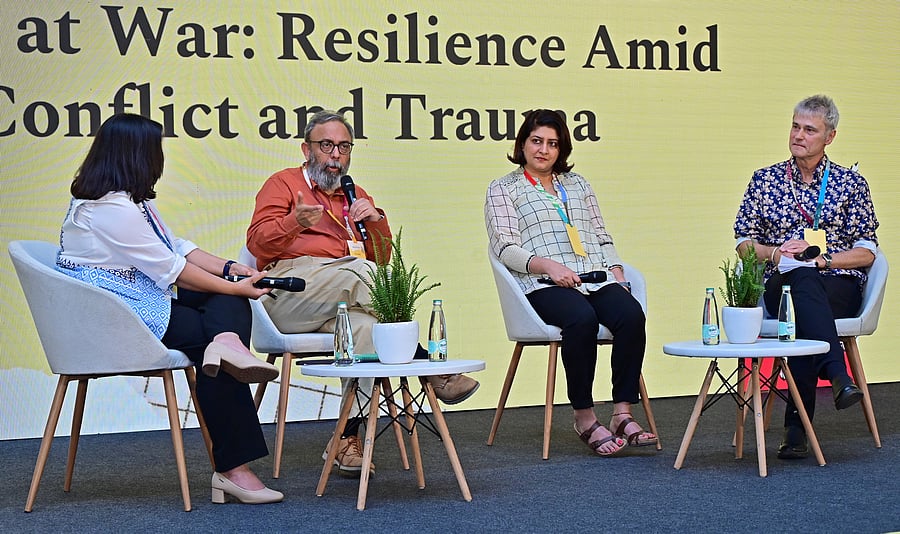
Bengaluru: The second day of 'Manotsava 2025: National Mental Health Festival' explored the coexistence of masculinity with vulnerability, marital intimacy, workplace burnout, and rising suicide rates.
Discussing the lack of intimacy in marriage, Dr Sandip Deshpande, psychiatrist and sexual and relationship therapist, said the problem stems from sexual medicine not being recognised as a branch by the National Medical Council.
Clinical psychologist Dr Shobha Managoli said drawing boundaries in marriage was essential since in-laws, family and friends could affect sexual life, sometimes leading to medical issues. Experts added that just as a woman must adapt to a new household, the family she marries into must also adapt to her.
Doctors also said seeking help for sexual orientation should be normalised. Telecommunications have made it easier for patients to consult doctors remotely, experts noted.
Men & vulnerability
Speaking on masculinity in the Gen Z world, youth influencer Shivam Dutt said, “We want to talk about mental health and masculinity together because if I have a mental health issue and cannot create content, it sets me behind.”
He added, “People talk about fashion and lifestyle, but nobody talks about wellbeing. We do not have role models discussing mental health, so someone has to take that space.”
Documentary filmmaker Rahul Roy shared his experience of childhood abuse. “I had a very traumatic experience. I could not process it then and began doing so only in college when I had access to literature,” he said.
Workplace burnout
Psychologist and lifestyle coach Sailaja Manacha said Bengaluru’s tech-driven culture and startup ecosystem have intensified burnout. "Capitalism and unrealistic corporate expectations make people chase bigger dreams at the price of burnout,” she said.
Suicides
An expert panel observed that mental illness leading to suicide cannot be attributed to a single cause.
Arjun Kapoor from the Centre for Mental Health Law and Policy said, “Suicides arise from ordinary life problems such as domestic violence, bullying, caste discrimination, and farmers’ distress. Therapy helps, but the root causes must be addressed.”
Dr Naveen Kumar from Nimhans said the Telemanas helpline has serviced 25 lakh people, including 40,000 suicide-related calls — 80% from those with suicidal thoughts. He added that Maharashtra and Karnataka record among the highest suicide rates in India.
